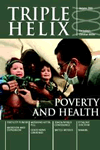Rick Simpson, a parish priest, has written this booklet in the Grove Books series as 'a Christian ethical reflection on the process by which abortions are authorised in England and Wales'. He intentionally discusses neither Christian ethical arguments about abortion nor other important questions within the abortion debate, such as when life begins and the rights of the unborn.
The first important issue he raises is that the process by which consultation regarding abortion occurs places Christian doctors opposed to abortion in an impossible position. 'They feel there is no good method of handling requests, which allows them to balance their ethics with good patient care'. In addition, in my experience, some fellow Christians have strong views on what the unfortunate Christian doctor should or should not do and express these with great insensitivity.
Chapter 2, 'Abortion on Demand', contains an excellent analysis of the interpretation of the current law and the criteria allowing abortion, particularly in relation to the unjust and discriminatory Clause E. This allows abortion even when the fetus is fully mature on the grounds of 'substantial risk of the child being seriously handicapped'. As he says, the resulting 'devaluation of life because of handicap in the unborn is hugely, staggeringly at odds with our political and social morality with respect to handicapped members of society'. This concern is widely shared by disabled people.
The third chapter is a telling analysis of what we, as a society, are saying about ourselves by embracing, however tacitly, our current abortion laws. Finally in chapter 4 the author challenges us all to four practical ways forward in which we, as Christians, proclaim the truth about ourselves, and about our loving God. This booklet is a 'must' for all those deeply concerned about the immorality, injustice and ethical illogicality of the abortion law in this country.
Reviewed by:
Gordon Stirrat
Emeritus Professor of Obstetrics & Gynaecology
University of Bristol































